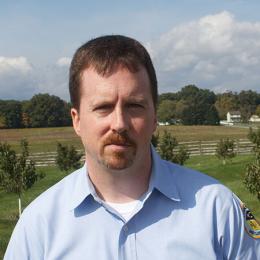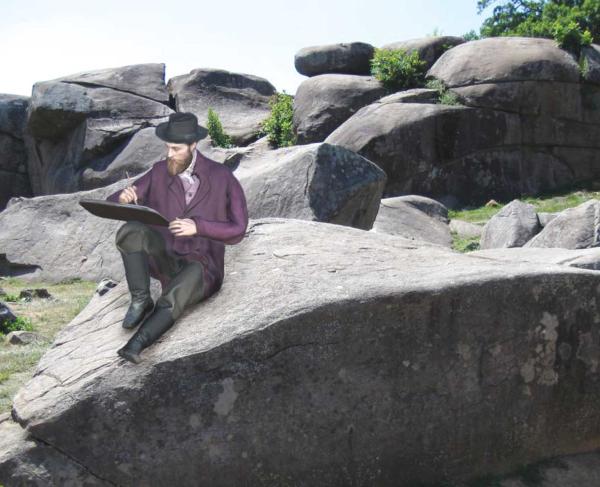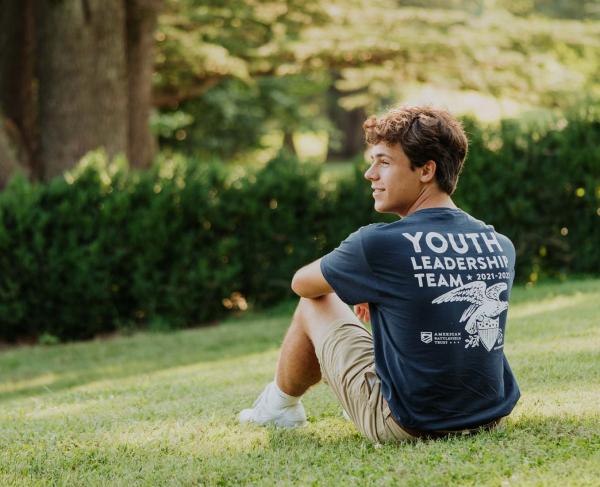Book: Sickles at Gettysburg
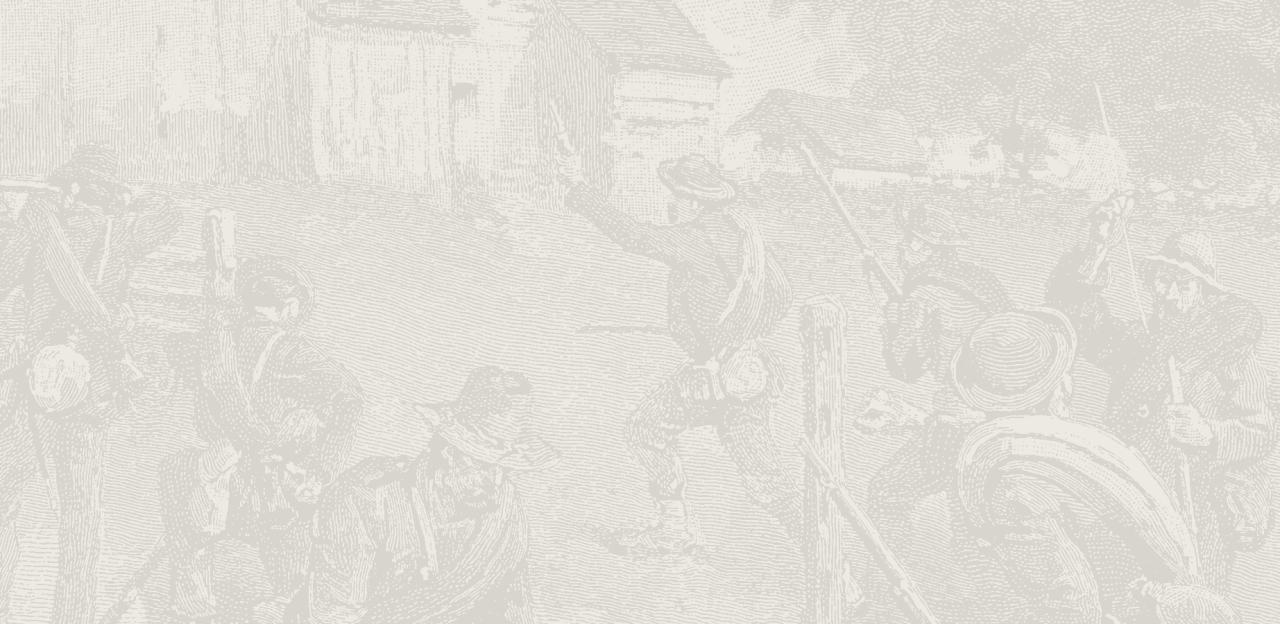
Civil War Trust recently interviewed James Hessler, author of Sickles at Gettysburg: The Controversial Civil War General Who Committed Murder, Abandoned Little Round Top, and Declared Himself the Hero of Gettysburg about his new book and Sickles' battlefield preservation efforts.
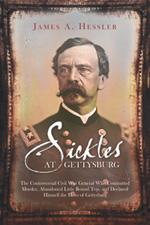
Civil War Trust: Your book's subtitle is "The Controversial General Who Committed Murder, Abandoned Little Round Top, and Declared Himself the Hero of Gettysburg." In a nutshell, are those the topics your book addresses?
James Hessler: Yes, I think the sub-title covers the basic story. We start with a Congressman who commits murder, and that indirectly leads him into the army. He becomes friends with people like Abe Lincoln and Joe Hooker, and uses their influence to climb in the army. Sickles gains some experience at the Seven Days, Fredericksburg, and Chancellorsville, but his critics would say that he didn't get enough experience. We cover his battlefield role at Gettysburg in pretty good detail, and I think all of the background then helps one better understand his post-war battles with Meade, and Sickles' attempts to defend his Gettysburg performance. Finally, he immerses himself in veteran affairs and not surprisingly keeps himself embroiled in various controversies. In the end, he uses his skills to help protect and create Gettysburg National Military Park. I discuss this early preservation role in more detail than any prior book. As you can see, there is a lot there, because Sickles had a very busy and controversial life.
As you know, there are a lot of Gettysburg books. What makes this one different?
JH: I really think there is something in Sickles at Gettysburg for everyone. How many Civil War books have adultery, murder, political corruption, three major battles (Fredericksburg, Chancellorsville, and Gettysburg), bickering amongst the Union generals, and the creation of a National Park that has been visited by millions of people? I struggle at times calling it only a Sickles biography, because for the battle enthusiasts, I think we cover a lot of the second day, specifically trying to understand how influential Sickles' move to the Peach Orchard is. It influences Lee, Longstreet, Meade, the second day, Pickett's Charge, and Culp's Hill.
What was your conclusion?
JH: My premise is that when you combine Sickles' battlefield and post-battle actions, no individual in Gettysburg's history has more combined influence. (Laughing.) It is up to the readers to decide if that influence is good or bad.
Did Sickles make a mistake in not putting his troops on Little Round Top?
JH: I try to shy away from the "what ifs." You can't completely escape that stuff, and it is fun to speculate, but the reality is that we don't know what would have happened if Sickles had occupied Little Round Top. We do know, however, what really did happen and it is hard enough to stay focused on that. Lee and Longstreet did want to occupy the Peach Orchard, and Sickles beat them to it. This disrupted the Confederate plan of attack. For many various reasons, and of course he often told people different reasons, Sickles thought the Peach Orchard was a better position than Little Round Top. Nearly everyone criticizes him for it today because with 140 years of analysis and hind sight, Little Round Top has been mythologized into the "key" of the battlefield. Sickles said that he defended the position by being in front of it. Being a Gettysburg Licensed Battlefield Guide, we get people on battlefield tours all the time who are there for the first time, just like these guys were, and don't have the West Point education, who can understand the move. It doesn't look preposterous to them, at least until they get that view from Little Round Top. I try to keep the book focused on thinking only of what the participants knew at the moment they had to make their decisions. They are hot, tired, under stress, and haven't spent 140 years studying the battle. A guy like Sickles has one chance to make his decision, he doesn't know the outcome, and right or wrong he goes for it. Ultimately, however, Lee did capture the Peach Orchard and was unable to drive Meade off of Cemetery Ridge. So I think that shows that both Lee and Sickles share the distinction of over-estimating the Peach Orchard's value.
You mentioned you are a Licensed Battlefield Guide at Gettysburg. What spurred your interest in Gettysburg and the Civil War?
JH: Unlike some, I don't necessarily trace back my interest to any specific childhood experience. I guess I always generally liked history, but never felt particularly obsessed with the Civil War. My Civil War interest kind of came in a roundabout way. I have, for most of my life, been an enthusiast of George Armstrong Custer and the Battle of Little Bighorn. I guess I like controversial people. My Custer interest ebbs and flows over the years, but it has led to many history book gifts for birthdays, Christmas, etc. One year, probably about 1992, someone bought me Killer Angels and that roped me into Gettysburg. People may criticize that book and movie for some of its details, but I am proof that it is a great way to introduce people to Gettysburg. Even if they ignore Sickles and Custer (laughing.) But 20th Maine fans should look on the bright side. If Sickles stays on Little Round Top then perhaps Chamberlain gets reduced to merely a footnote in this battle. So Chamberlain probably owes Sickles that. I actually talk about some of this in my book, so again it is not purely a biography.
Why did you decide to write a book on Sickles?
JH: I was struck by the contradictions in Sickles. Of course, he is a colorful subject, with the murder trial and all. But specifically, this is a man who accomplished a lot in his life, both good and bad: a prominent attorney and politician in his era, the notoriety of his murder trial, a substantial role in two of the war's key battles (Chancellorsville and Gettysburg), and then he plays a major part in developing the park at Gettysburg. So there is a lot to discuss. There is also an increasing trend in the recent Gettysburg books, blogs, and discussion groups to sound bite Sickles into this very one dimensional "political general," a "scoundrel," and an "amateur" fumbling around amongst the supposedly seasoned "professionals." He had a lot of friends during his lifetime, so it interested me that he is so despised today by people who never met him. I started to research to see if he was really as one-dimensional as he is increasingly portrayed. I was afraid that some of this Sickles hostility would damper interest in the book, but fortunately a number of friends and Guides thought that there was an opportunity here and encouraged me to keep going.
Did you learn anything new while writing this book?
JH: Yes, definitely. I have been a Licensed Battlefield Guide since 2003, but I certainly feel like I understand the battle better after having done this. Regardless of where Sickles was, Longstreet was going to have a tough time turning Meade's flank. Lee wanted another Chancellorsville, I think, and the terrain was just not going to accommodate him. As far as Sickles is concerned, there are some myths that have been written about him. People often describe his murder of Key as "cold blooded." While I hardly condone murder in the book, "cold blooded" does not fit the facts of the case and the "temporary insanity" defense has been somewhat overblown. Another myth is the story of Sickles being carried off the field calmly smoking a cigar. I wanted to write the ultimate first-hand account of that, but when I examined the primary accounts, I was surprised by what I found. Some people think that there is "nothing new" to learn about Gettysburg. That may be true for a small amount of people, but hopefully if I learned something from this book then others will to, and be entertained at the same time.
What reactions do you get from people when you discuss Sickles?
JH: First of all, I underestimated the hatred that many modern Gettysburg students have for this man. Sickles' controversial nature should, in my opinion, make him more FUN. Let me put it another way. We are far removed in time from these people, but there are people who still HATE this guy. That's a shame because it makes it that much harder for them to be open-minded in studying Gettysburg as a hobby. I understand that his Peach Orchard move is considered one of the great blunders in American military history. But people really hate him more because of his attacks on Meade after the battle, and again I understand that. Here's a surprising but true story -- my wife was at a barbeque and mentioned that her husband (me) was writing a Sickles biography, and a re-enactor just started berating her, saying Sickles was responsible for thousands of deaths, etc. People assume that I must support everything that Sickles did. Of course I don't. How could I, if I wanted people to take this book seriously? When I mentioned this project to a well-known national historian, he kind of rolled his eyes and said, "Well, whose side are you going to be on?!?" That says a lot to me, that people have a hard time being objective.
So whose side are you on, Meade or Sickles?
JH: My goal was to be on no one's side. I wanted to achieve a balanced look at Sickles and Gettysburg's second day. I wanted to lay the facts out there with as little spin as possible. I used sources that were both pro and con, and tried to use the participant's words as much as possible. I hate when authors paraphrase the subject's words; I want to hear exactly what the actual people had to say. Ultimately, did I support the move to the Peach Orchard? No. But do I think Sickles is the monster, or "idiot" (I hear that word used a lot) that many people think he is? No.
So even though Sickles is a man who many people hate, what would you say are his most positive attributes?
JH: I admire the fact that you couldn't keep him down. He was ambitious, which unfortunately is a dirty word to many people today. Sickles always came back for more. In that era, the disgrace of the murder trial might have finished a less ambitious man, but he bounced right back by raising troops. Then they refused to nominate him for general and he fought his way through that. Then he rose through the ranks in the army. Even if he was only "working the system," no "idiot" could manage all that. Then he got his leg shot off and Meade wouldn't let him back into the army -- and again he bounced back by reinventing himself as a war hero. And he had a heart too -- he took his wife Teresa back, was very committed to the Union war effort, most of his contemporaries considered him brave, and he was very committed to veteran affairs and battlefield preservation. He wanted for years to get the government to protect Gettysburg battlefield, and pushed for a Soldiers' Home there too. He also supported increased veteran pensions. Some of the things he said over the years are just plain funny. There is a lot to like, but again it all comes back to the one-dimensional sound bites. He's the "amateur" who disobeyed Meade at Gettysburg, as if that one afternoon covers his entire life.
How important were Sickles' battlefield preservation efforts at Gettysburg?
JH: Very important. He had the political clout, celebrity, and drive to get things done. I would never call him Gettysburg's most important preservationist, David McConaughy deserves that honor, but I'd certainly put Sickles near the top of the list. He chaired the New York Monuments Commission for almost three decades, put a lot of monuments on the battlefield, helped attack William Tipton's commercial developments near Devil's Den, and introduced the bill that created Gettysburg National Military Park. He even drew up the Park's initial boundaries. The veterans cheered him when he went back to Gettysburg to give speeches. Imagine how different the reaction would be if he went back there today. Of course, money was missing from the Monument Commission's coffers, and I cover that in the book too...
Do many people know about Sickles' preservation efforts?
JH: No. Few participants, if any, combine to be as important during and after the battle as he was. Yet the typical visitor has never heard of him, and has certainly never heard anything positive about him. Sickles even gets short notice in a lot of the histories of the battlefield, yet he put a lot of the monuments on the field, dedicated a number of them, introduced the bill, and set the boundaries. His modern critics will sometimes say that certainly someone else would have created the National Park were it not for Sickles. That is revisionism. The simple fact is that it was Sickles who got the job done. It was the most positive and lasting accomplishment in his long career and it is unknown, overlooked, or downplayed by a lot of people who enjoy the battlefield today.
What do you hope this book will accomplish?
JH: I hope it will give Sickles' reputation some balance and perspective. It is not a love letter to Sickles. I am certainly critical of him when he deserves it. I also hope that battle enthusiasts, particularly of the second day, will find it indispensable in understanding what happened and why. Finally, I hope that the preservationists will pause to remember that Sickles would be very supportive of their efforts, even though you might not want to give him your grandmother's money, and that we owe a lot of the Gettysburg National Military Park we know today to Dan Sickles.
Thank you for the interview, Mr. Hessler. We appreciate your time.
JH: You're welcome, thank you for the opportunity. I hope your readers enjoyed it, and will look forward to learning more about Sickles.
Buy the Book: "Sickles at Gettysburg" is available from Savas Beatie
Related Battles
23,049
28,063
